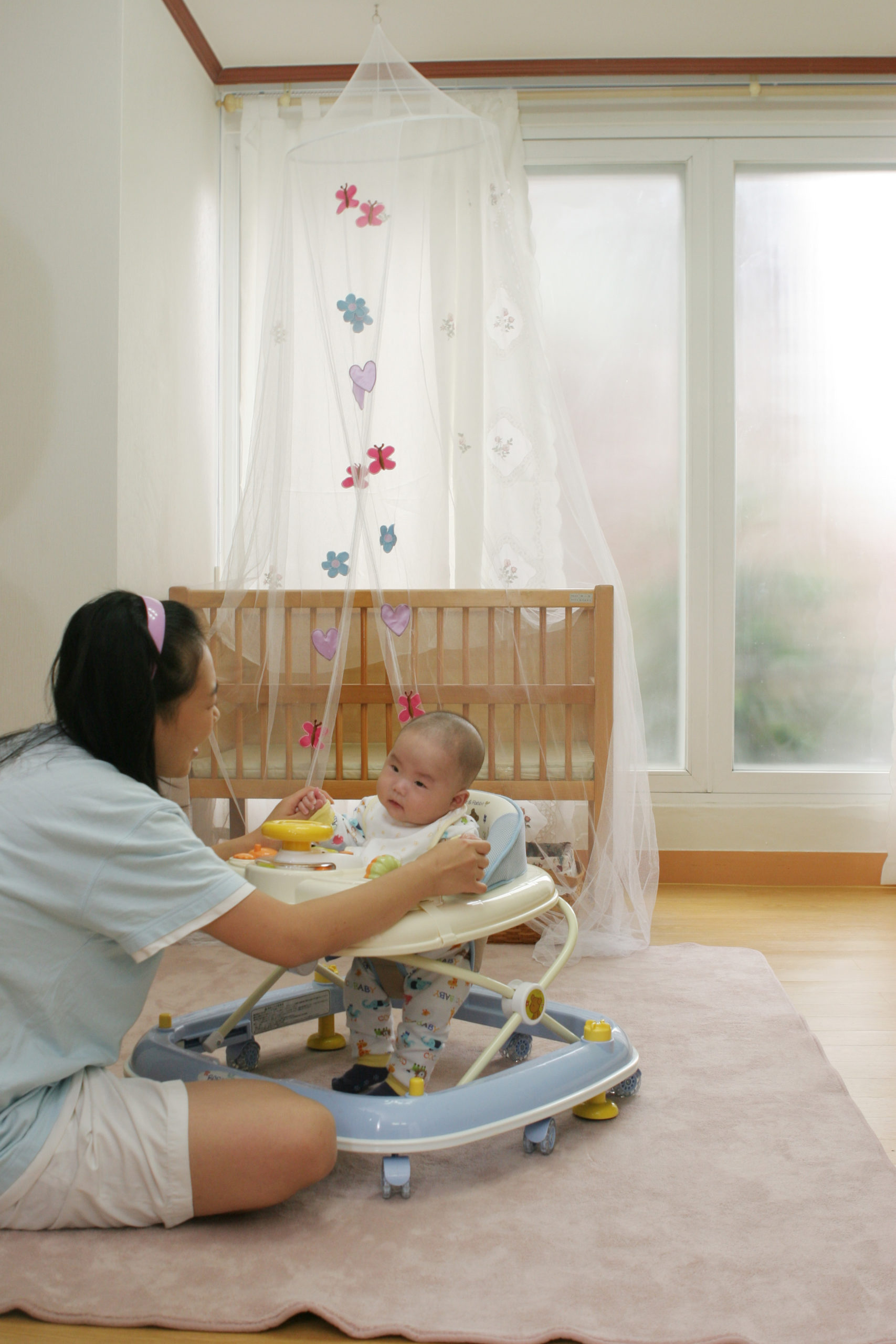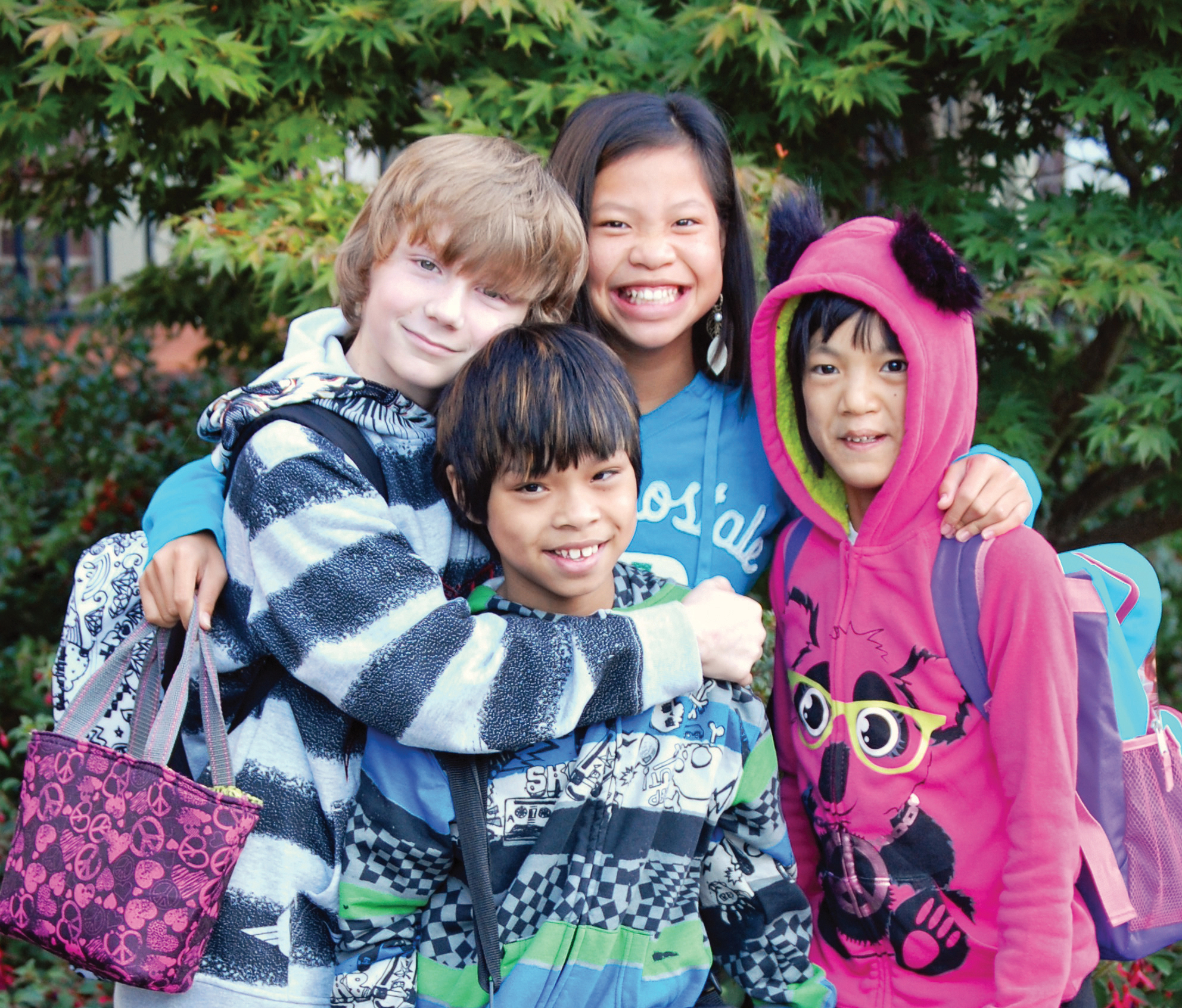At several shelters across Korea, Holt helps unwed mothers grow stable and self-reliant, regardless of whether they choose to parent or relinquish their child.
It’s quiet at first, maybe even a bit awkward, as two rows of people curiously watch each other across the room. One row is exclusively women, each of them in various stages of pregnancy. Sitting opposite them is a group of American visitors, all adopted from Korea as toddlers. The adoptees and the pregnant women don’t speak the same language — the women speak Korean, the adoptees English. But they’re here, in one of the six unwed mothers shelters Holt supports in Korea. To talk.
One woman looks to Paul Kim, Holt’s director of programs in Korea, and asks the question burning in her mind.
She asks in Korean, and Paul turns to the adoptees before he translates her question to English. Like most in the room, his eyes fill with tears.
“Do you hate your birth mother?”
These two groups — American adoptees, and Korean women unsure of whether to parent or relinquish their child — have met intentionally. The adoptees traveled to Korea with Holt’s annual Christmas gift team to bring presents to children in Holt’s care. During the trip, they stopped at the Holt Morning Garden unwed mothers home to visit the women, and participate in this exchange — an activity that Holt staff occasionally facilitates. It offers an opportunity for adoptees and the women seeking refuge at the shelter to learn from one another, in a healing way.
The adoptees and Morning Garden residents exchange candid questions back and forth, many of them difficult to answer — and difficult to ask. The unwed mothers’ questions convey in particular the anguish they feel.
“What was it like growing up in America?”
“What do you think of adoption?”
“Will my child forget me?”
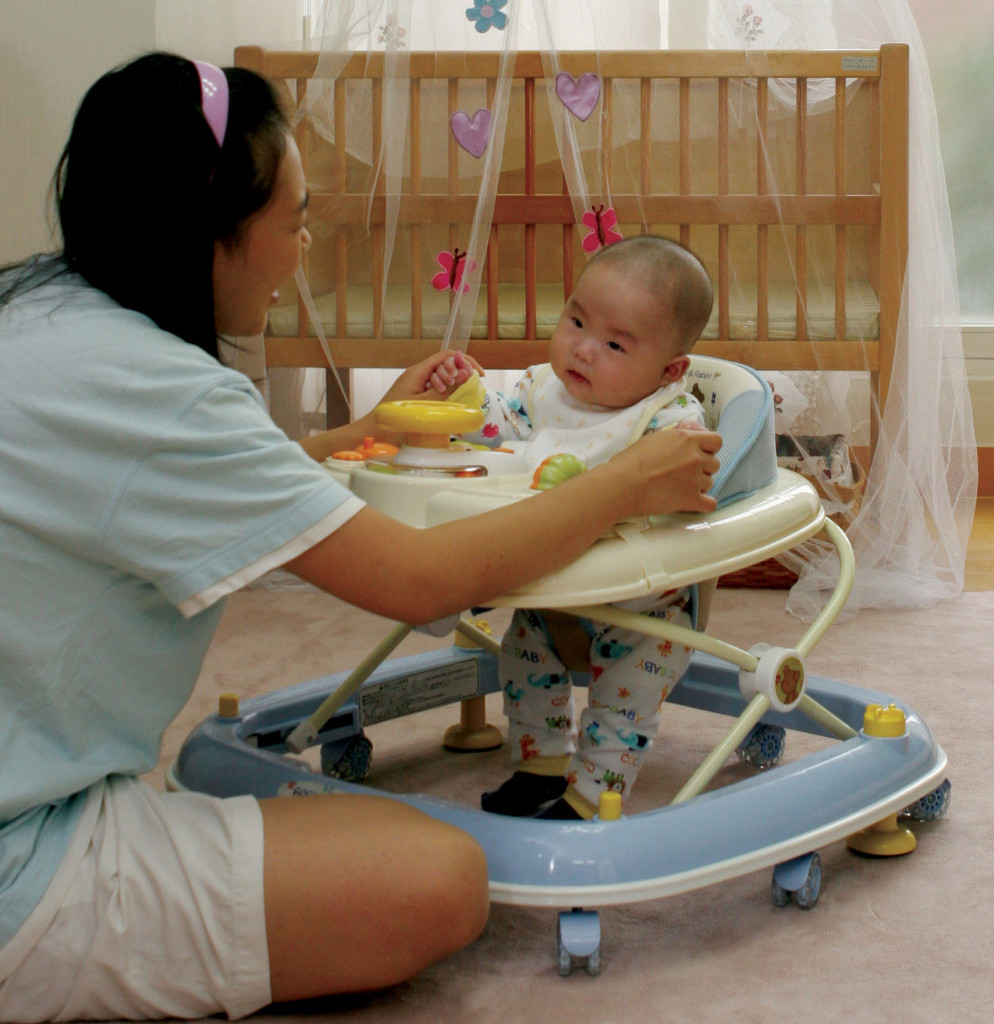
From the windows of their hillside home, the women at Holt Morning Garden shelter look over the Daejeon valley — an exploding metropolis in central Korea, home to nearly 2 million people. Today, Daejeon is considered the Silicon Valley of Korea, and the city’s economic revival has nearly washed away the history of the region — a history marred by war.
Following the Korean War, orphanages opened throughout Korea to house the many children left in the wake. Harry and Bertha Holt arrived, too, and facilitated the world’s first adoptions, understanding that these children — orphaned or abandoned as a result of the war — deserved to grow up in loving, nurturing families.
Today, adoption from Korea is still common, but the children who need homes are rarely orphans. Despite numerous advances in other aspects of Korean life, a stigma against unwed mothers remains strong in this culture with its historic emphasis on bloodlines.
Unwed mothers are often passed over by employers, educational opportunities and even future spouses. And social welfare programs offer little to alleviate their economic struggle. Children of unwed mothers, too, may face discrimination when they try to get a job, get into a good school or find a spouse. Fearing rejection by their families and discrimination from society, many single women choose to abandon or relinquish their children.
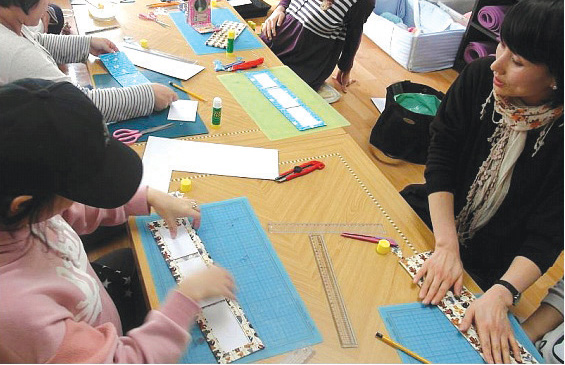
At any given time, about 30 women may live at Holt Morning Garden — some pregnant and some with their newborn or toddler-age child. Morning Garden has a home-like feel, but operates like an all-in-one school, medical clinic, daycare and therapy center. The shelter is newly built, and equipped with libraries and exercise rooms. The atmosphere is typically cheery, and the women and staff joke and talk as close friends. There’s a sense of camaraderie, and the women and staff celebrate motherhood with birthday parties and traditional ceremonies for the children.
For those who choose to relinquish, Paul says the shelter offers multiple types of counseling and therapy. And, when the opportunity presents itself, speaking directly with adoptees and adoptive families can be extremely healing.
“The number one question women have, naturally, is ‘will my child be loved?’” Paul says. “But after, it’s like a great weight has been lifted for the women. There’s a peace. It doesn’t lessen the heartbreak or their longing to see their child, though. It’s always going to be a heartbreaking decision.”
“The number one question women have, naturally, is ‘will my child be loved?’ But after, it’s like a great weight has been lifted for the women. There’s a peace. It doesn’t lessen the heartbreak or their longing to see their child, though. It’s always going to be a heartbreaking decision.”
Paul Kim, Holt Korea Program Director
Paul says he’s led this conversation many times, but it never gets any easier to moderate. “Everyone there, even me, is crying,” he says. “Because this is about lives. You can’t not be affected. But it’s also worthwhile because it’s a way to bridge two cultures and bring understanding.”
Besides counseling, Holt Morning Garden offers many services to prepare the women for when they leave the shelter. Some women spend their days attending classes to finish their high school equivalency exams. Some take vocational courses — like computer or cosmetology courses — to help improve their job prospects once they leave. Some women take parenting or nutrition classes in preparation for the birth of their child. Some women are still deciding which option is best for them and their child.
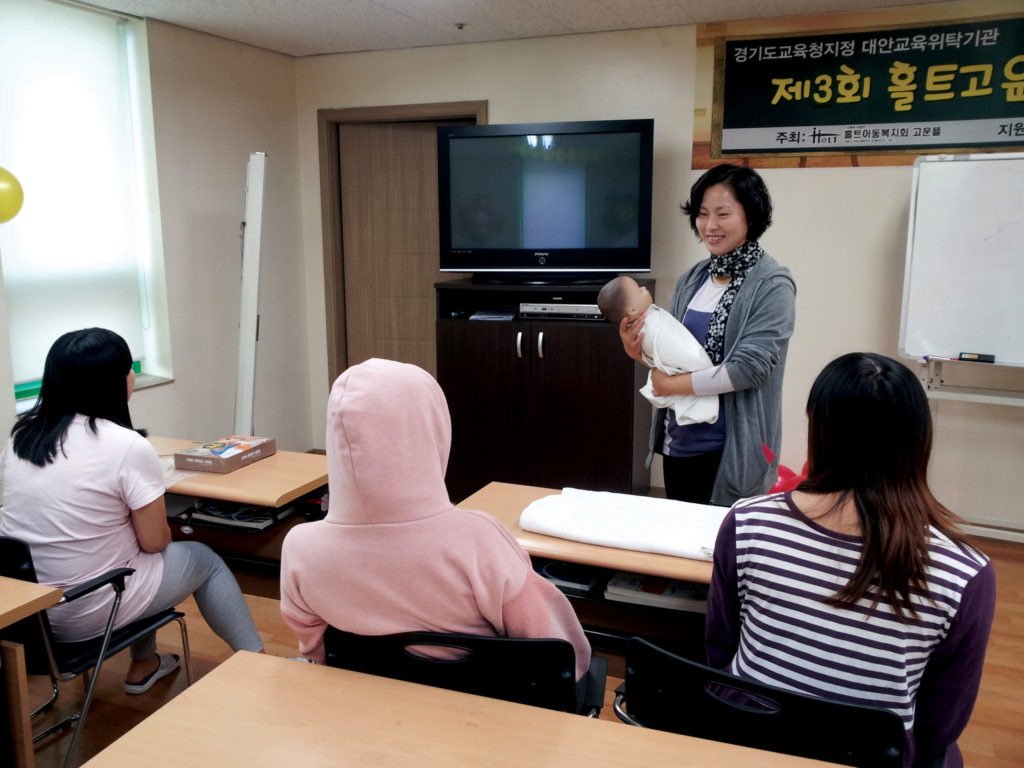
Across Korea, about 90 percent of children born to unwed mothers are relinquished for adoption. Ten years ago, this number was even higher — close to 97 percent. But Holt Morning Garden, like all the unwed mothers shelters Holt supports, does not encourage women to relinquish or parent their child. Rather, the staff, doctors and therapists help educate and prepare each woman to make the decision that is right for her — and 50-70 percent of the time, women choose to parent.
“The women feel more confident in their ability to support and properly care for their children,” Paul says. “Their approach has turned relinquishment rates upside down.”
For the women who choose to parent, the shelter has special programs that reunite the mother with her family, since the support of family is especially critical for unwed mothers in Korea. Without any financial assistance or help from family, daycare and child-raising costs can be overwhelming. For women who do not have family support, the shelter offers long-term care — sometimes offering free room, board, medical care and support to both mother and child for the first two years of the child’s life. Holt Morning Garden’s goal is to ensure that when women leave the shelter, they are stable, safe and self-reliant.
These shelters are all critical to Holt’s mission: ensuring children grow up in permanent, loving families — and whenever possible, in their own family.
Over the years, the women at Morning Garden have ranged in age from 13-40 years old. Some are victims of sexual assault or domestic abuse. Some just need support and a place to belong. All are cherished and valued. And when it comes time for the women to decide whether to parent or relinquish, they will be able to make the most educated decision possible.
“The decision to parent or relinquish is never easy,” Paul says. “It will always be hard. But, they’ll know they are supported regardless of their decision.”
Billie Loewen | Former Holt Team Member
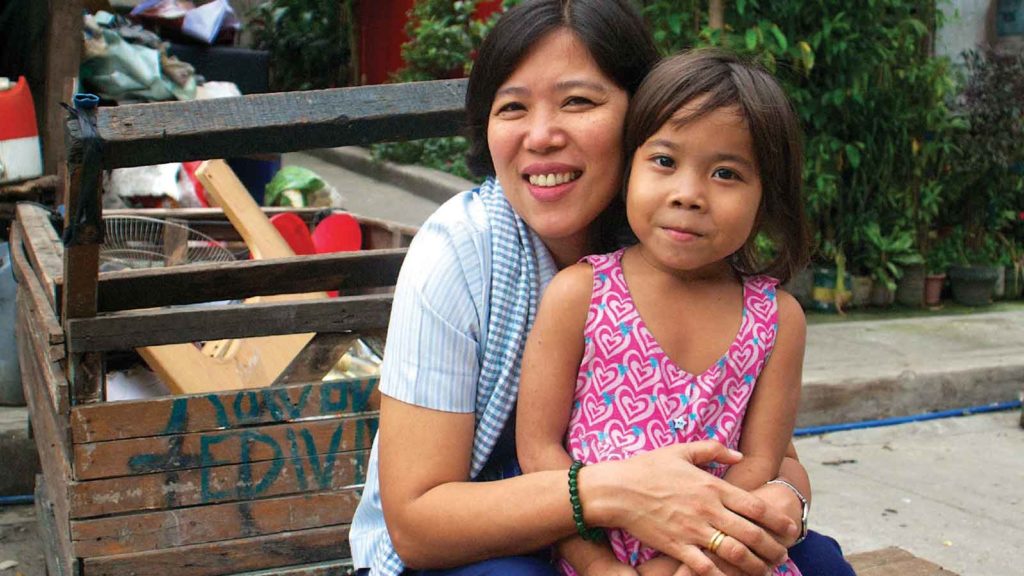
Empower a Single Mom
You can give a single mom the personalized help she needs to become independent and support her children. Whether you provide a safe home, nutrition training, baby items or education, empowering a mom will change her and her children’s lives forever.
